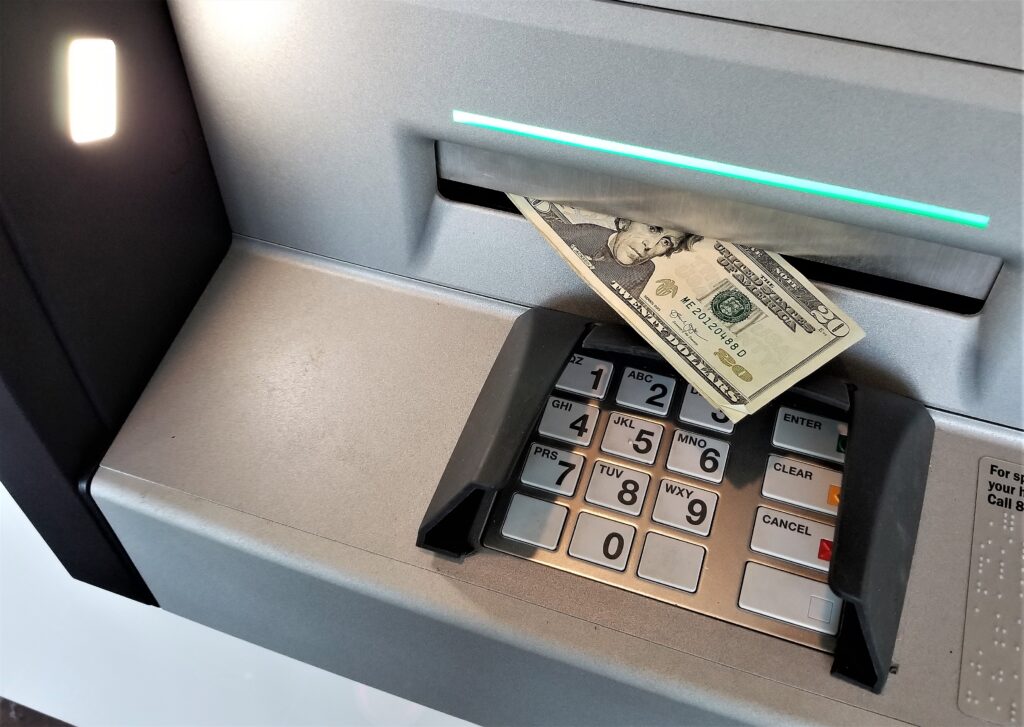Bank of Hawaii Corporation (NYSE:BOH), headquartered in Honolulu, stands as one of the most enduring and respected financial institutions in the Pacific region. Established in 1897, the bank has built a legacy of trust and stability that spans more than a century, serving generations of individuals, families, and businesses throughout Hawaii, Guam, and other Pacific Islands. Over the years, Bank of Hawaii has evolved from a small, locally rooted financial firm into a regional powerhouse, offering a full spectrum of banking services while maintaining its deep community ties and cultural relevance across the islands it serves.
The bank operates through three main business segments: Consumer Banking, Commercial Banking, and Treasury and Other. Through Consumer Banking, Bank of Hawaii provides a wide range of essential services including savings and checking accounts, residential mortgages, home equity lines of credit, auto loans, personal installment loans, and credit cards. It also offers private client banking, wealth management, and trust services that cater to individuals and families seeking long-term financial security. Commercial Banking, on the other hand, supports the growth of small businesses and large enterprises alike by providing access to working capital, real estate financing, and leasing solutions, while also offering tailored services for institutional clients. The Treasury and Other division strengthens the bank’s financial foundation by managing investment securities, liquidity, and risk, ensuring a balanced and sustainable approach to growth.
What sets Bank of Hawaii apart from many regional banks is its unique geographic footprint. As one of the largest and most established banks in Hawaii and the Pacific Islands, it has cultivated an unmatched level of customer loyalty and brand recognition. Its position as a trusted community partner has allowed it to maintain a dominant market share in deposits, lending, and investment services within its operating region. While many banks face fierce competition on the U.S. mainland, Bank of Hawaii benefits from a highly defensible local market, where cultural ties, customer trust, and deep community involvement create barriers to entry for new competitors.
Another defining feature of Bank of Hawaii’s legacy is its conservative management style, which has guided the company successfully through multiple economic cycles, including global recessions and financial crises. The bank has earned a reputation for prudent lending, strong capitalization, and disciplined balance sheet management, making it a resilient institution that investors and customers alike can depend on. Its ability to consistently deliver profitability, maintain solid credit quality, and provide sustainable shareholder returns reflects a business model that values long-term security over short-term risk-taking.
Beyond financial services, Bank of Hawaii has long been recognized for its community engagement and corporate responsibility. The company is actively involved in supporting local initiatives, charities, and educational programs, reinforcing its role as more than just a financial institution. This dedication to social responsibility aligns with its mission of serving not only its customers’ financial needs but also the broader well-being of the communities it calls home.
Today, Bank of Hawaii remains a cornerstone of economic life in the Pacific, balancing innovation with tradition. While it continues to integrate digital banking and modern financial technologies into its operations, it does so without losing sight of its heritage and customer-first approach. For over a century, the bank’s strategy has been rooted in reliability, stability, and service, values that continue to guide its growth and strengthen its reputation as one of the most dependable banks in the United States.
Institutional Investors Show Confidence Despite Minor Reductions
Recent SEC filings highlighted that Vanguard Group Inc. trimmed its holdings in Bank of Hawaii by just 1.6% in the first quarter, selling 73,770 shares. Despite this, Vanguard still owns over 4.54 million shares—an 11.44% stake worth $313.43 million. This level of ownership underscores how large institutions continue to see long-term value in the company.
Other investors have also been adjusting their positions. Versant Capital Management increased its holdings by 80.2%, while Private Trust Co. NA made a dramatic increase of more than 18,000%, adding 550 new shares. Golden State Wealth Management doubled its stake, while CWM LLC boosted its position by nearly 32%. With 82.18% of Bank of Hawaii stock owned by institutional investors and hedge funds, the shareholder base is firmly institutional, a clear signal of confidence in the bank’s fundamentals.

CHECK THIS OUT: How Globalstar (GSAT)’s Strategic Apple Partnership is Changing the Satellite Game and Intel (INTC)’s Epic Comeback: Why Wall Street May Be Dead Wrong About This “Dying” Chip Giant.
Strong Trading Performance and Solid Valuation Metrics
Shares of Bank of Hawaii have been trading higher, climbing nearly 4.8% to $68.69 in recent sessions. The stock’s 12-month range between $57.44 and $82.70 reflects resilience even in a volatile interest rate environment. At current levels, the company holds a market capitalization of $2.73 billion, supported by a P/E ratio of 18.03 and a PEG ratio of 0.85, suggesting the stock is attractively valued relative to its earnings growth potential.
The company’s beta of 0.80 reflects a lower level of volatility compared to the overall market, making BOH appealing to risk-averse investors seeking stability. With a debt-to-equity ratio of just 0.40 and both quick and current ratios at 0.70, Bank of Hawaii demonstrates a conservative financial profile. Its balance sheet strength positions it well to withstand credit cycles and maintain lending activity even if economic conditions tighten.
Earnings Growth Reinforces Operational Strength
In its latest earnings release, Bank of Hawaii reported earnings per share of $1.06, surpassing Wall Street’s consensus estimate of $1.04. Quarterly revenue came in at $174.48 million, slightly below analyst expectations of $177.82 million, but the quality of earnings remains strong. Net margin stood at 16.30%, while return on equity reached an impressive 12.67%.
Compared to the same quarter last year, when BOH earned $0.81 per share, the recent results reflect meaningful growth. Analysts now forecast full-year EPS of $3.97, pointing to continued earnings momentum. This growth demonstrates how the bank has successfully managed interest rate repricing, asset quality, and expense control to maintain profitability.
Reliable Dividend Policy Underlines Shareholder Value
One of Bank of Hawaii’s most attractive features is its consistent dividend policy, a hallmark of its shareholder-friendly approach. The bank recently declared a quarterly dividend of $0.70 per share, payable on September 15th to shareholders of record as of August 29th. This represents an annualized payout of $2.80 per share and a yield of 4.1% at current stock prices.
The dividend payout ratio sits at 73.49%, a sustainable level given the bank’s steady earnings and strong capital base. For long-term investors, this makes BOH not only an income-generating stock but also one that has proven dependable through multiple economic cycles. With more than five decades of consecutive dividend payments, Bank of Hawaii has a track record of stability that few regional banks can match.
Wall Street Analysts Provide Constructive Outlook
Wall Street remains cautiously optimistic about Bank of Hawaii. Barclays recently raised its price target from $67 to $68, maintaining an “underweight” rating, while Piper Sandler initiated coverage with a “neutral” rating and a $71 price objective. Stephens, meanwhile, lowered its target slightly from $78 to $76 but kept an “overweight” stance, reflecting confidence in the bank’s strategic execution.
Overall, according to MarketBeat data, the stock holds an average rating of “Hold” with a consensus price target of $75. While analysts are mixed, the upper range of estimates suggests that upside remains possible, particularly as the bank continues to deliver steady earnings and attractive dividends. For investors seeking value in regional banking, BOH’s lower volatility and reliable performance stand out as key differentiators.
Strategic Moat in Hawaii and Pacific Markets
Beyond the numbers, Bank of Hawaii benefits from its unique geographic moat. As the dominant locally based bank in Hawaii and the Pacific Islands, it commands a strong market share in deposits, lending, and wealth management services. The Consumer Banking division provides a wide spectrum of products—from checking accounts to mortgages and auto loans—while its Commercial Banking arm supports businesses across the region.
The bank also serves high-net-worth individuals and institutions with investment management and trust services, creating diversified revenue streams beyond traditional lending. This broad reach ensures that BOH remains deeply embedded in the financial fabric of the Pacific region, providing resilience and customer loyalty that national competitors struggle to replicate.
Conclusion: A Compelling Case for Long-Term Investors
Bank of Hawaii Corporation presents a compelling bullish case for investors seeking a mix of income, stability, and moderate growth potential. Its strong institutional ownership, solid balance sheet, consistent earnings growth, and reliable dividend payouts underscore the bank’s financial health. Trading at a reasonable valuation with a dividend yield over 4%, BOH offers both defensive qualities and upside potential.
While Wall Street analysts remain somewhat cautious, the fundamentals point to a resilient, conservatively managed regional bank with a unique geographic advantage. For investors who believe in the enduring strength of Hawaii’s economy and the Pacific region’s growth, Bank of Hawaii (NYSE: BOH) deserves serious consideration as a long-term portfolio anchor.
READ ALSO: POET Technologies (POET) Delivers 1.6T Optical Innovation—Is a Massive Revenue Surge Next? and BigBear.ai (BBAI) is Flying Under the Radar—But Not for Long. Here’s Why Bulls Are Piling In.






